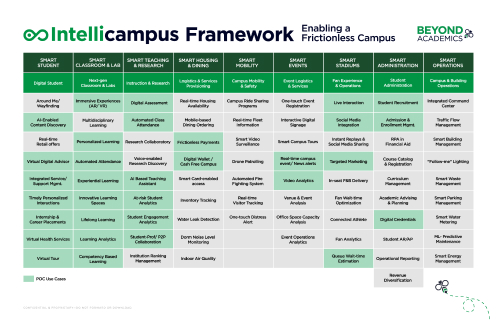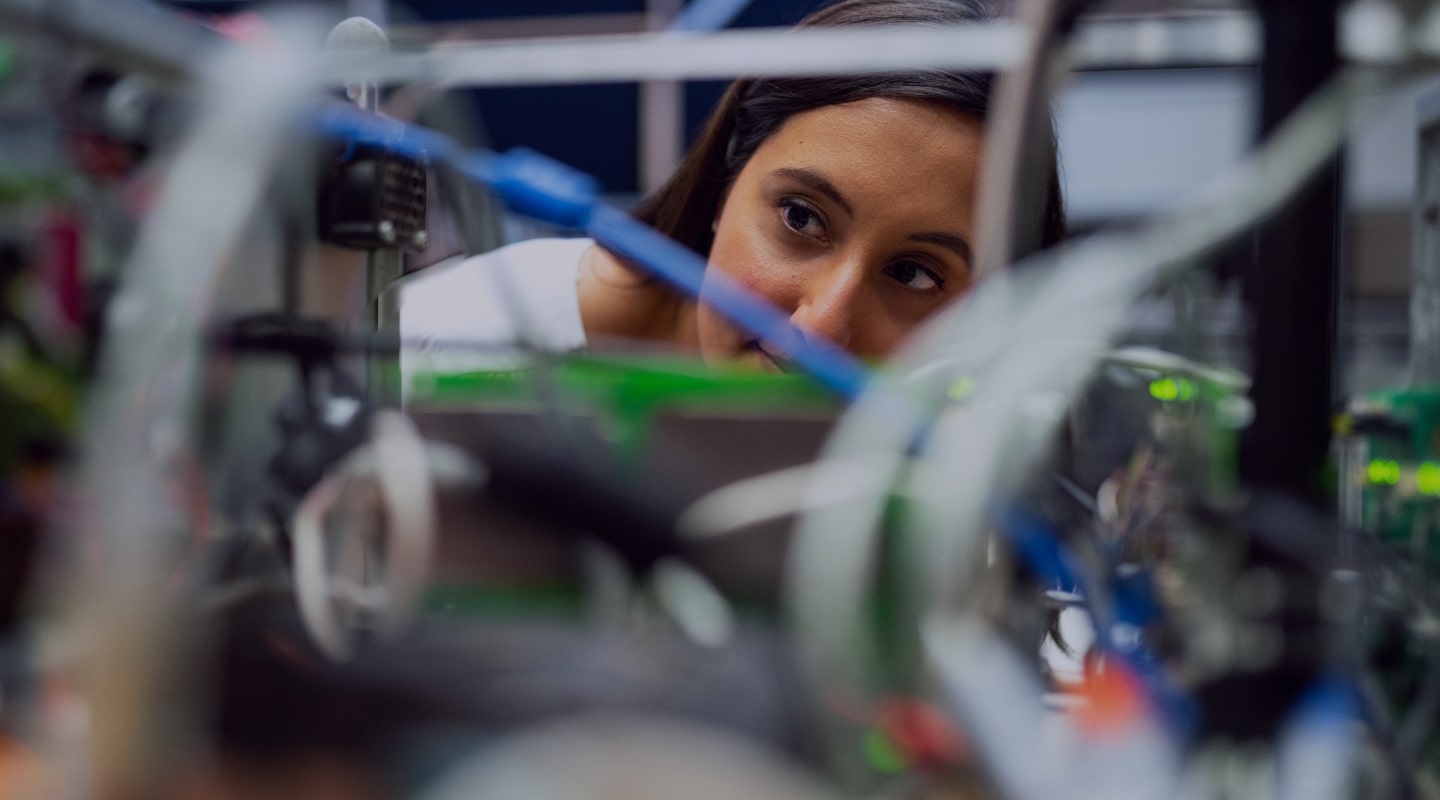 Entrepreneurial Mindset
Entrepreneurial Mindset
Colleges & Universities Teach Entrepreneurial Mindset, But Do They Practice What They Preach?
In a pre-pandemic, pre-generation Z world, life was reasonably good in higher education.
- The product offering of higher ed needed little-to-no innovation since students kept enrolling as a captive audience.
- The service experience of higher ed could mirror a DMV experience, and students just had to deal with it.
- Professional growth of staff and faculty could be delivered as more of a “check the box” initiative of HR, because there was a no real competition for talent.
- Enrollment strategy could be rinse-and-repeat year over year. After all, direct mailing brochures with pictures of campus life, and hosting some high school outreach had worked for decades.
- Budgets typically grew, so each year it was just a matter of finding new things to spend money on.
- Technology on campus could follow the bread crumbs of analysts, big tech vendor spin, and “best practices”.
- Institution-centric policies, procedures, systems, and structures got the nod over any uncomfortable change that was customer (student) centric.
- Disruptors within the campus and their outlier ideas were easily sidelined or muffled to avoid any discomfort to the institution.
The outcome of decades of malaise have caught up to higher ed, and Beyond Academics continues its study into entrepreneurial behavior—and how to activate and sustain it safely in the campus enterprise.
- Idea Generation
- Problem Solving
- Risk Acceptance
- Need to Achieve
- Persistence
- Future Focus
- Passion
There is no question that the proper use of these traits are mission-critical in today’s institution. However, developing safe and effective ways to activate and sustain the behavior in an institution is easier said than done.
Led by Managing Partner Joe Abraham, the research and development initiatives Beyond Academics is currently involved include:
- Measuring the level of entrepreneurial behavior in college staff (by department).
- A study of entrepreneurial DNA within teams and working groups to identify ideal group makeups based on desired outcomes.
- A study of entrepreneurial behavior and entrepreneurial DNA across higher ed institution—but within various departments (e.g. IT staff vs faculty vs enrollment vs registrar groups across multiple institutions).
- The outcomes of Innovator-DNA Presidents vs. the outcomes of Specialist-DNA Presidents.
- The outcomes of institutions led by Presidents recruited from outside higher education vs. the outcomes of Presidents grown up within higher education.
- The outcomes of institutions led by academic Presidents (e.g. former Provost) vs institutions led by business-focused Presidents.
- The connection between fiscal sustainability, business model adaptation, and data-driven decision making, and the entrepreneurial DNA of the chief executive.
Outcomes from our ongoing research will be shared at industry conferences, via the FutureX Podcast, and in the BA Insights Area. You can also follow or connect with Joe Abraham on LinkedIn.
Interested In Contributing Or Participating In Our Ongoing Work? Let’s Talk.
 Digital Transformation
Digital Transformation
It’s no secret that Beyond Academics is not a proponent of replacing ERP/SIS systems every few years like higher ed has been doing. No sooner does a tech vendor announce a new platform (SaaS, Cloud, etc) or module (HR, Finance, Student), than IT departments clamor with functional leaders to make the business case for another purchase.
Since our inception, Beyond Academics has been scouring the globe for next generation technologies that solve the real problems on a campus, rather than just replace one user interface for back office work with a new user interface. We launched Intellicampus as a vision for a set of capabilities and campus should have in today’s modern technology experience. After all, why should a learner have an Amazon experience when purchasing clothes, a YouTube experience when learning a new skill, and an Uber experience when getting a ride to campus, to then go back 20 years in time when attempting to enroll, complete the financial aid process, or even get a transcript? The partners at Beyond clearly recognized that we could not make the real digital transformation possible without a large network of thought partners, technology innovators, vendors, and institutions working together to design the “smart” campus of the future. So we developed the Intellicampus platform—a place where ideation, innovation, testing, and deployment of next generation technologies take place.

The Future is Frictionless
Here are some examples of R&D we are conducting today:
- We brought a community college, a technology startup, and some thought partners together to solve a transfer credit problem the school was encountering that was causing major delays in enrollment. After several rounds of ideation and innovation, a solution was customized that bolted on to the school’s PeopleSoft SIS and turned a process that used to take weeks, to a process that now takes seconds. That tool can now be deployed at other PeopleSoft schools.
- A future-minded registrar wanted to offer digital badges and other credentials via a platform that made it easy for credentials to be awarded, shared, and verified. Although there were several products being promoted at industry events, none seemed to have the right feature set and flexibility. We teamed the registrar up with the CIO of another institution who had developed his own blockchain-based platform from the ground up. We’re continuing to invest in the development of this product and adding features like the ability to store searchable metadata about each course a learner takes, the ability to have comprehensive learner records, and the ability for another institution or prospective employer to validate the authenticity of a credential without any human in the middle.
- A college President had an idea for a financial tool that would aid decision makers with analytics on margin optimization at the institution, department, and even course level. This President had already sat through demos from multiple ERP vendors, analytics platforms, financial management software systems, and dashboard providers to find that none of them were designed with and for the real decision makers. We’ve brought a team of thought partners, technologists, and product architects around this President to explore the concept and are developing a co-funding development of a prototype of his vision to test by Fall 2023.
- During a client engagement at a large school, we invited a few innovative technology vendors to install their software as part of a test to see how this “package” of solutions worked together to enhance the capabilities of the SIS at that school, while delivering a radically better student and staff experience. Early data from this test is showing a significant drop in man hours needed to deliver service, a much faster and friction-free experience for students and a high level of functionality for a fraction of the cost of big tech software.
If you’re a nimble, high-impact, modern technology that would like to work with us to demonstrate market impact, learn more about the Intellicampus Accelerator and Certified Partner Program.
If you’re an institution looking to evaluate and test breakthrough technologies entering the Intellicampus network without the high upfront cost or obligation, contact us to join our Digital Innovators Community.
If you’re deeply involved in higher ed, and passionate about solving real problems with modern technology, and would like to be a thought partner to technologists, innovators, and disruptors, contact us and introduce yourself.
 Future of Work
Future of Work
Future Of Work Doesn’t Simply Impact Learners. It Impacts Work On Campus—And Beyond Academics Is Charting A Path For Both.
Our future of work research is led by our founder Matt Alex who has been recognized globally as a a leader in this field.
Matt has keynoted events around the country on this topic and leads a team of thought partners inside and outside Beyond Academics to advance initiatives to benefit higher ed including:
- Design of frameworks for academics to better collaborate with industry to spin up high-value programming that is relevant in today’s market.
- Methodologies and technology to bridge the divide between credit and non-credit courses so that learners can stack credentials and learn-as-they-go, rather than having to complete 160 hours to be considered “job ready”.
- Prototyping TalentFarm—a human incubator that better prepares soon-to-be-graduates for the world of work by equipping them with soft skills, technology capabilities, and entrepreneurial mindset the don’t get in the classroom.
- Studying the impact of generative Ai, machine learning and other exponential technologies on the work that is delivered on campus. We’re developing frameworks to reskill and redeploy staff who were working in roles that technology will soon take over.
- Traits of the future-ready executive: Multiple partners at Beyond Academics are teamed up in the study of the skills, behavioral profile, competency and leadership style that will be required of the future leaders of higher education. We’re also developing leadership curriculum and executive coaching resources to prepare the next generation of leaders for their future roles.
If you’re fascinated by the future of work for learners and/or the future of work at the campus enterprise, and would like to collaborate with us in our ongoing research and development, connect with Matt Alex on Linkedin and engage in the conversation there to start.

